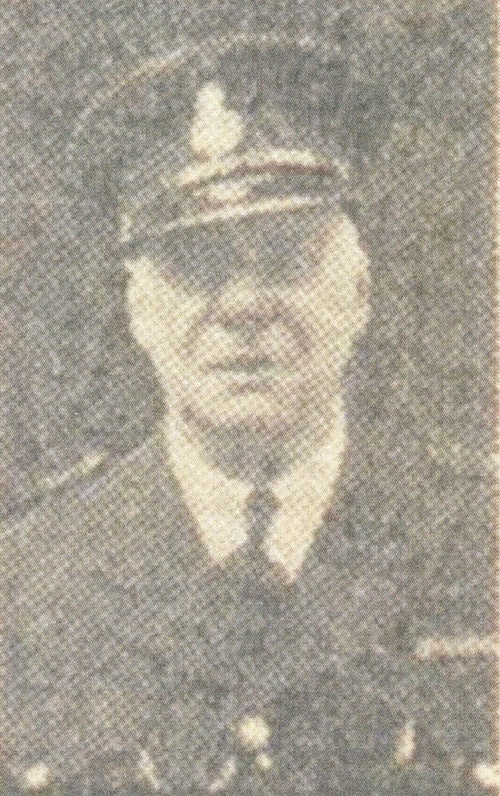
Auction: 20001 - Orders, Decorations and Medals - conducted behind closed doors
Lot: 889
A 'Plymouth Blitz' group of five awarded to Inspector G. H. Strathon, Plymouth Special Constabulary, late Royal Horse Artillery, who was awarded a King's Commendation for Brave Conduct for rescue work at Plymouth during the night of 20-21 March 1941
British War and Victory Medals (206232 Gnr. G. H. Strathon. R.A.); Defence Medal 1939-45; Coronation 1953; Special Constabulary Faithful Service Medal, G.VI.R., clasp, Long Service 1945 (Inspr. George H. Strathon), swing mounted, good very fine (5)
The Western Morning News of 11 April 1942 describes events which led to the award:
'Inspr. Strathon who receives belated commendation for his gallantry in the March Blitz, was primarily responsible for saving three women and five men who had been buried under the debris of houses in Leigham Street, and his honour is the first awarded to any of the junior officers of this voluntary force.
After being on duty practically all day in connection with the visit of the King and Queen, Inspr. Strathon was at home when the "Alert" sounded. High-explosives then rained down on Leigham Street and Carlisle Terrace. Houses were destroyed, people were buried and killed. He then proceeded to the Grand Hotel and called for volunteers from the bar…'
George Henry Strathon was born in 1899 in the Parish of Charles, Plymouth, the son of Edwin Alonzo Strathon of 3 Radnor Street, Plymouth. Rather than follow in the footsteps of his father who worked as a plumber in the City, Strathon briefly worked as a laboratory assistant at Ilford, Essex, before attesting for the Royal Horse Artillery at Woolwich on 7 March 1917. Despite suffering from an enlarged thyroid, Strathon served in Mesopotamia and was discharged on 31 March 1920. He returned to Plymouth and took temporary residence at 17 Rednor Street, a few doors down from his parents and two younger sisters.
Strathon moved to the village of Bere Ferrers in the 1930s and worked as an auto engineer. In 1938 he returned home to Plymouth and took employment as a Police Constable whilst living at 4 Leigham Street. It would be on this street three years later that Strathon displayed bravery and devotion to duty which led to his recommendation for a Civil Defence gallantry award by the Chief Constable of the Plymouth City Constabulary.
The Plymouth Blitz
The Plymouth Blitz was a series of bombing raids which largely targeted the Naval Base at Devonport, but which caused severe damage to civilian areas; a case in point being the first Luftwaffe visit on 6 July 1940 which involved a daylight raid by a single aircraft. At around midday, the aircraft dropped a stick of bombs on a block of eight houses on the Corporation Housing Estate in Swilly Road, Devonport, killing three people.
By the winter of 1940/41, the intensity of Luftwaffe attacks had risen considerably - correlating with the ferocity of U-Boat attacks in the North Atlantic and the desperate need for convoy escort vessels. The situation in the city is vividly described by Jean Baldwin, who was just 9 years old at the time:
'The sight of Plymouth burning was one I will never forget. As we sped past Central Park we looked over the whole city which seemed ablaze from end to end. Searchlights moved through the sky lighting up the barrage balloons and occasional aircraft. And still the guns thundered on. In the morning Plymouth was a smoking ruin' (WW2 People's War, refers).
It was on a similar evening that Strathon returned home after have been on duty for several hours. Almost immediately incendiary and high explosive bombs fell in large numbers around his home, and 'without hesitation' he left the building and extinguished many small fires in the neighbourhood (A report by the Chief Constable, refers). With little assistance, he endeavoured to effect rescues from premises which had been completely demolished, the work being made even more hazardous by the fires and the failure of the water supply. In particular, he organised volunteers to remove the beams and heavy furniture which had trapped his neighbours following a direct hit at 17 Leigham Street. The Chief Constable was not sparing of praise for Strathon:
'He is a man of ability and courage whose coolness, devotion to duty and disregard for his own safety and comfort has made him a most valuable and respected officer of the Special Constabulary.'
For his bravery in rescuing his neighbours that night, Strathon was awarded the King's Commendation for Brave Conduct (London Gazette 10 April 1942, refers). Sadly and inexcusably - just two months after the events which led to his recommendation - Strathon's home on Leigham Street was broken into whilst he was on duty. Alfred Harvey, 49, unemployed, of no fixed abode, was remanded in custody by P.C. John Ley, who found him in the house laden with a bottle of port and a bottle of sherry to the value of £1 (The Western Morning News, 1 May 1941, refers). Despite this setback, Strathon remained in the city for the duration of hostilities and died in Plymouth in 1961; sold with copied MIC, recommendations and research, together with a contemporary riband bar with wearing pin, the 1939-45 Defence Medal ribbon bearing an MID oak leaf, as worn by the recipient.
Subject to 20% VAT on Buyer’s Premium. For more information please view Terms and Conditions for Buyers.
Sold for
£260
Starting price
£150




